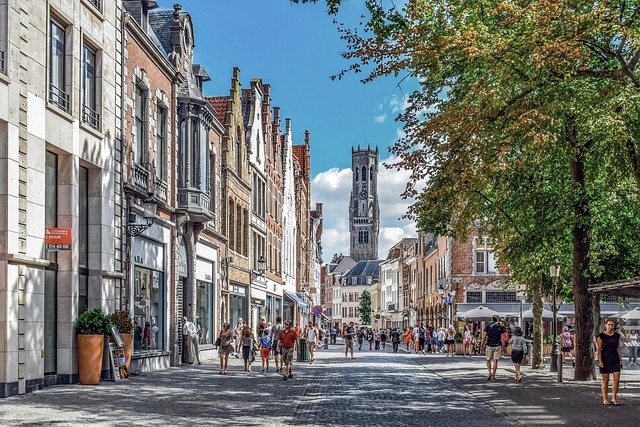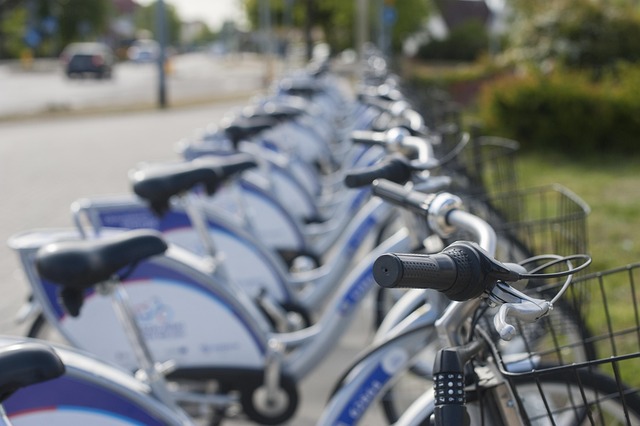Karachi, Pakistan's bustling metropolis, faces urban challenges like traffic congestion, inadequate infrastructure, and environmental concerns. However, a community-driven approach offers hope. Grassroots initiatives, technology, and collaboration between citizens, local orgs, and government can address issues like poverty, healthcare disparities, and pollution. Smart technologies, green spaces, and sustainable architecture can optimize traffic, reduce emissions, enhance safety, and improve quality of life. Encouraging citizen engagement through meetings, forums, and digital platforms empowers residents to participate in decision-making and contribute to the city's development, setting a national example for sustainable urban growth.
“Uncovering innovative strategies, this article explores fresh perspectives on addressing community and national challenges, with a particular focus on the vibrant city of Karachi. From navigating urban congestion to fostering citizen engagement, we delve into successful examples of collaboration and sustainability. ‘Navigating Karachi’s Urban Challenges’ highlights community-driven initiatives transforming urban landscapes. Additionally, ‘National Resilience’ examines how partnerships overcome barriers, while ‘Innovative Solutions’ showcases sustainable development models for metropolitan areas. Together, these insights underscore the power of collective action.”
- Navigating Karachi's Urban Challenges: A Community-Driven Approach
- National Resilience: Overcoming Obstacles Through Collaboration
- Innovative Solutions for Sustainable Development in Metropolitan Areas
- Fostering a Culture of Engagement: Empowering Citizens to Drive Change
Navigating Karachi's Urban Challenges: A Community-Driven Approach

Karachi, as one of Pakistan’s most populous and vibrant cities, faces a myriad of urban challenges, from traffic congestion to inadequate infrastructure and environmental degradation. However, a community-driven approach offers a promising solution to navigate these issues. By empowering local communities, Karachi can foster collaboration and innovative ideas to create sustainable and livable neighborhoods.
This involves grassroots initiatives where residents actively participate in decision-making processes, leading to tailored solutions for their areas. For instance, community-organized clean-up drives and greening projects not only enhance the urban environment but also strengthen social cohesion. Moreover, technology can play a pivotal role; mobile applications and online platforms can facilitate communication, enable efficient reporting of issues, and promote real-time engagement between citizens and local authorities, ensuring Karachi’s urban challenges are addressed effectively and sustainably.
National Resilience: Overcoming Obstacles Through Collaboration

In the face of national challenges, building resilience requires a collective effort and collaboration across communities. Cities like Karachi, with their diverse populations and complex social fabric, serve as microcosms for these collaborative efforts. Overcoming obstacles demands a unified front where citizens, local organizations, and government bodies work hand in hand to address pressing issues. This includes tackling urban challenges such as poverty, healthcare disparities, and infrastructure development.
By fostering partnerships and sharing resources, Karachi can become more resilient, ensuring that its communities are better equipped to handle crises and navigate tough times together. Collaboration strengthens the social fabric, encourages innovation, and paves the way for sustainable solutions to emerge from within the city itself.
Innovative Solutions for Sustainable Development in Metropolitan Areas

In metropolitan areas like Karachi, where rapid urbanization presents both challenges and opportunities, innovative solutions are essential for sustainable development. The city’s vibrant yet bustling landscape offers a unique canvas to explore creative approaches that can address pressing issues such as pollution, traffic congestion, and inadequate infrastructure. One promising strategy involves integrating smart technologies into urban planning and management. For instance, implementing intelligent transportation systems can optimize traffic flow, reduce carbon emissions, and enhance road safety.
Additionally, the promotion of green spaces and sustainable architecture can significantly contribute to a healthier urban environment. By encouraging eco-friendly building practices and transforming unused areas into parks or community gardens, Karachi can mitigate environmental impacts while enhancing residents’ quality of life. These initiatives not only cater to the present but also ensure a more resilient and livable city for future generations, setting an example for sustainable development on a national scale.
Fostering a Culture of Engagement: Empowering Citizens to Drive Change

In vibrant cities like Karachi, fostering a culture of engagement is key to tackling both community and national challenges. Empowering citizens to take the lead in driving change creates a sense of ownership and collective responsibility. By encouraging active participation and dialogue, communities can identify unique solutions that cater to their specific needs. This bottom-up approach leverages local knowledge and resources, ensuring that initiatives are relevant, sustainable, and reflective of the diverse tapestry of Karachi’s population.
Through various platforms, from community meetings to digital forums, citizens can voice their concerns, share ideas, and collaborate. Such engagement not only strengthens the bond between residents and local governance but also fosters a sense of agency. Empowered citizens are more likely to participate in decision-making processes, hold leaders accountable, and actively contribute to the city’s development—a true game-changer for tackling complex challenges faced by Karachi.
The diverse challenges faced by Karachi, from urban congestion to sustainable development, highlight the need for innovative and collaborative solutions. By adopting community-driven approaches and fostering a culture of civic engagement, as illustrated in each section, we can navigate these obstacles and build a more resilient and prosperous future for all. These strategies, when implemented with inclusivity and adaptability, offer promising new angles to tackle both local and national challenges, ensuring a sustainable and thriving Karachi.







Leave a Reply